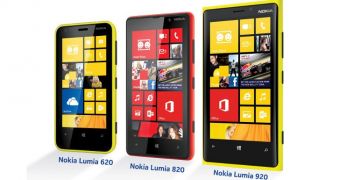Microsoft’s Windows Phone platform is now world’s third mobile operating system available on the market, and that won’t change for a while, for better or worse.
Windows Phone has recently switched places with BlackBerry’s operating system, which seems to continue to bleed market share to other major players in the market as well (Android, iOS).
However, the real winner of BlackBerry’s fall is Windows Phone, which gained lots of users who were willing to jump onto Windows Phone boat.
The positive trend is confirmed in the latest surveys published by multiple respectable research companies. One of the newest offers us details on the Windows Phone market share in Australia.
The Australian smartphone market is ruled by Android, there’s no doubt about it. Android and Samsung are the most prolific players in the Australian market, by Windows Phone is represented as well.
According to IDC Australia’s latest survey on the Australian Mobile Phone Market, Windows Phone market share hit 4% in Q1 2014, up 1% from last year.
The top three of operating system share in Australia is dominated by Android (50%), iOS (33%) and feature phone (12%). The survey took into consideration feature phones as well, which continue to decline as more and more people transition to smartphones.
Speaking of which, the survey mentions feature phone shipments declined in Q1 2014 by 38%, Smartphone shipments dropped as well by 20% quarter-by-quarter, but this was only due to the seasonal lull.
“The smartphone market in Q1 was subdued when the initial hype over Apple’s new iPhone 5s and 5c tapered off from last quarter. Consumers were also holding off their purchases in anticipation for the next wave of Galaxy S smartphones from Samsung, then rumoured to be in Q2,” says IDC’s Senior Market Analyst Amy Cheah.
IDC also mentions in its survey that it expects 4G LTE and migration from feature phones to continue to drive smartphone sale in the next months, with a forecasted growth of 5% in smartphone shipments by the end of the year.
“While still niche now given the high price points, phones with screens larger than 5 inches, or more commonly known as Phablets, will become mainstream as lower display cost opens up greater opportunities for affordable low-end Phablets in the long run,” says Cheah.
On a side note, BlackBerry is shown with 0% market share in this survey, but we don’t have any idea why. Maybe because no one uses BlackBerry smartphone in Australia anymore? That would be hard to believe.

 14 DAY TRIAL //
14 DAY TRIAL //